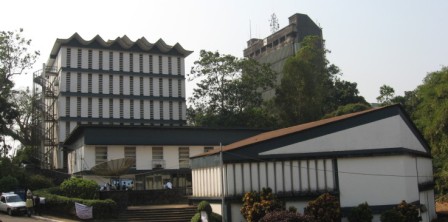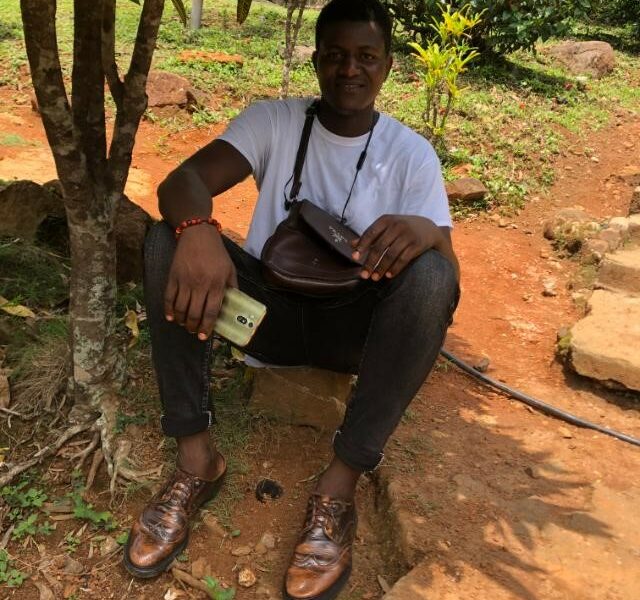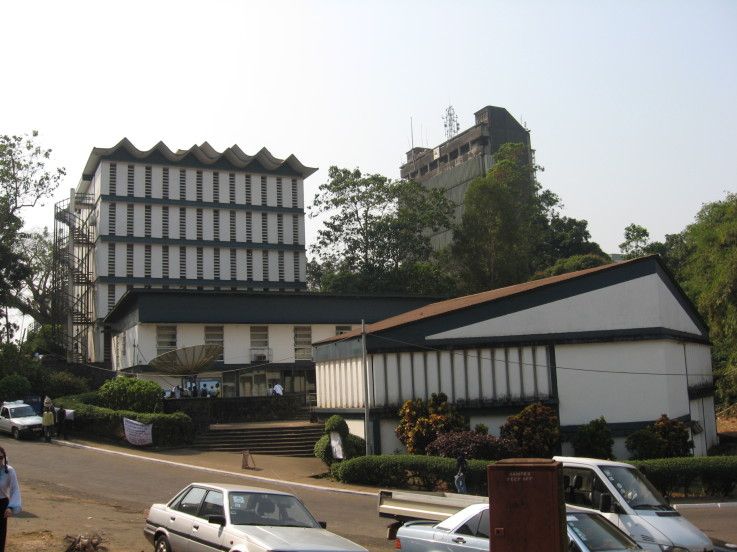Vice Chancellor and staff of the University of Sierra Leone may be indicted as ‘accomplices’ to plagiarism and academic fraud
I am a proud alumnus of Fourah Bay College, one of the constituent colleges that make up the University of Sierra Leone and the oldest in Sub-Saharan Africa. I graduated in 2005 with a Bachelor of Arts degree and in 2009 with an LLB Hons degree in law. During my 8 years tenure as a student of that university, I make bold to say that I had little or no considerations at all for strict observance and adherence to plagiarism rules and injunctions as well as intellectual property and copyrights obligations. In that case, it is highly likely that I did commit plagiarism and academic fraud in the writing of my research papers, term papers, assignments and dissertations when I was a student of the University of Sierra Leone. I am also of the firm conviction that a lot of my colleagues who have darkened the walls of the University of Sierra Leone may have as well shared my predicament situation… And as I write this piece of article, I am quite optimistic that thousands of students in the University of Sierra Leone are presently committing plagiarism and academic fraud.
Apparently, all of these anomalies have happened and are still happening because the Vice Chancellor and staff of the University of Sierra Leone have failed to put in place robust and proactive measures that would limit and deter students from breaching plagiarism rules and intellectual property rights and copyright injunctions.
As Fourah Bay College celebrates its 187 years of existence, I am motivated to put forward this thought provoking article in which I discussed the following issues: what is plagiarism and academic fraud? What are the laws and policies that regulate it? How is plagiarism and academic fraud committed? What are the implications of the absence of a plagiarism detector device and checker in the University of Sierra Leone? And how can plagiarism and academic fraud be deterred or limited within the University of Sierra Leone; albeit in the quest to stimulate a positive change in the status quo of the University.
What is plagiarism and academic fraud?
Simply put, plagiarism is the practice of presenting thoughts, writings and outputs of another as original without acknowledgement of their source(s). The key word here is “work”. It includes all materials whether it is a printed text, web based material, artistic and sound recordings, computer designing or resources from the electronic media. Examples of plagiarism may include the import of a single phrase from another’s work without use of quotation marks and acknowledgement of source; summarising another’s work by changing a few words or altering the order of presentation without acknowledgement; or copiously copying another’s work.
Examples of academic fraud may include the representation of a piece of unauthorised group work as the work of a single candidate, or the submission of an assignment or presentation of data in laboratory reports or projects or dissertation done by another person as the student’s own work.
What are the laws, policies and devices that regulate it?
It is unarguably true that plagiarism constitutes a breach of Intellectual Property Rights and protection. In this sense, intellectual property laws could be a vital means of regulating plagiarism. In Sierra Lone, the object and purpose of the Copyrights Act of 2011, among other things includes the doing away with acts of plagiarism. According to part 11 of section 4 of the Act, works eligible for copyright protection include literary works, artistic works, musical and sound recordings as well as computer software programmes among others. By section 5 (1) of the Act, a work is also to be protected if it is first published by the UN and its specialised agencies, or by the African Union or ECOWAS.
Secondly, plagiarism and academic fraud is usually regulated in many western universities through the institutionalization of a Code of Conduct governing plagiarism and academic dishonesty within institutions of learning. There are also bodies often set up to investigate complaints of plagiarism and make punitive recommendations against defaulters.
Most importantly however, making use of plagiarism detection software and devices has proven to be an effective way to checkmate plagiarism within University. In almost all universities in Europe and a few in Africa, all students are required to submit their work electronically through this device a night or two before the due date of submission of assignments to determine their plagiarism percentage level.
How is plagiarism and academic fraud committed?
From the above definition of plagiarism and academic fraud, one can commit the above when one fails to either acknowledge the use of phrases taken from another person’s work by way of quotation marks or footnotes or when someone submits an assignment, laboratory reports, project designs, artistic or research work undertaken by another person and purports it to be his original work.
What are the implications of the absence of a plagiarism detector device and checker in the University of Sierra?
Sad to say, all of the constituent colleges that make up the university of Sierra Leone including Fourah Bay College, one of the oldest universities in sub-Saharan Africa, with over 186 years lifespan, could still not see the importance of having in place a plagiarism detection device and software in a bid to promote a sound culture of research and ingenuity among members of their constituencies. This is quite a bizarre especially when one considers the primary objective and goal of a university. A university exists primarily for two purposes: to train and impart knowledge and to further research. If these two objectives are not pursued, then that university is as good as a social club. The conspicuous absence of plagiarism detector software has debilitating and catastrophic consequences for the educational system and output of the University of Sierra Leone in the following ways:
- It gives room for students to plagiarise the works and materials of others with impunity.
- It makes it harder and difficult for students who have plagiarised and committed academic fraud to be detected and punished.
- It frustrates the need for students to be ingenuous and innovative in their research.
- It limits a student’s capacity to appreciate and analyse issues and arrive at cogent and logical conclusions.
- It may also put the University of Sierra Leone in a bad light in the international academic rating system as it may be deem to be complacent in dealing with the issue of plagiarism and academic fraud.
- It acts as a disincentive to growth and development of academic literatures in the country.
- It exposes the University of Sierra Leone as well as its students to criminal charges and indictments on breach of intellectual property laws and copyrights injunctions.
- It also affects the academic output of students in their place of work, job assignments and post graduate studies after graduation.
- It clearly shows that the University of Sierra Leone is wilfully undermining the spirit and object of the Copyrights Act of 2011 by failing to guarantee Copyright protection within its constituency.
How can plagiarism and academic fraud be deterred or limited within the University of Sierra Leone?
If Plagiarism and academic fraud is to be nipped in the bud in the University of Sierra Leone, four key recommendations are to be taken into consideration:
Firstly, students should be encouraged and advised to do the following when undertaking a research or writing their dissertations and term papers.
- Read widely. If a student read a large number of sources, he or she is less likely to become dependent on a small number of sources which he or she might quote or plagiarise.
- When students read, they must make notes in their own words and record the full details of the source (s).
- Students should develop their own analytical structure for their papers and not just base their structure on that of an existing source.
- Students should synthesise information from a large number of sources.
- Students must build the structure of their paper (headings, sub-headings, topics etc.) before they write a single word.
- Students must write the paper or dissertation from their notes and not with the original sources open in front of them.
- Lastly, students must use footnotes and bibliography to record full details of all the sources of information and ideas they have made use of.
Secondly, every student writing research assignments, term papers or dissertations must be ensured to sign a plagiarism contract and declaration confirming that they have sourced and cited the materials personally and that the entire work is their thought and not anyone else. The plagiarism contract and declaration may take the following form:
‘I (Student ID Number) have read the Code of Practice regarding plagiarism contained in the Students’ Introductory Handbook of the University. I realise that this Code governs the way in which the University Senate Committee on Academic Dishonesty regards and treats the issue of plagiarism. I have understood the Code and in particular I am aware of the consequences which may follow if I breach that code. I also authorise the university to scan the e-copy of my research paper through the Plagiarism Detection Software to detect plagiarism. SIGNED……… DATE………’
This therefore brings me to third and most important way to deter and limit plagiarism which is, having in place a plagiarism detection software and device in the University. All students would then be required to submit their work electronically to this device a day or two before the due date of submission to determine their plagiarism percentage level. Papers which are found to have been overtly plagiarised will be brought to the attention of the module lecturer or supervisor and the appropriate sanction will be imposed against the student, in accordance with the severity of the offence.
But in order to fairly deal with situations of alleged plagiarism and academic fraud, it is also vital to have in place a Senate Committee on Academic Dishonesty that would be charged with the responsibility of producing regulations governing plagiarism and academic dishonesty, investigating allegations of plagiarism and academic fraud committed by students and give recommendations to the University Senate body to either withhold a student’s degree or expel the student from the university particularly where he or she has been found wanting of plagiarism and academic dishonesty.
Conclusion
In sum, as Fourah Bay College University of Sierra Leone celebrates its 187 years of existence on the 18th of February 2014, it is indeed a fitting and proper time for the Vice Chancellor and staff of the University of Sierra Leone to reflect on this issue of plagiarism and academic fraud and make a firm commitment to put in place mechanisms that will deter or limit its occurrence within its constituency before it may be too late. It is indeed a shame after going through 8 years of university education that my research skills were never enhanced, not necessarily because there were no good tutors at Fourah Bay College but because there was a conspicuous absence of a plagiarism detector device and policy that would have helped to stimulate a sound culture of research in me as well as hundreds of other fellow colleague students. Thanks to the University of Pretoria and the University of Dundee for maintaining such a policy and plagiarism detector device. Today, I am proud to say that my research capabilities have been greatly enhanced. But how many Sierra Leonean students will be fortunate to have such opportunities like me? That’s all the more reason why the University of Sierra Leone must act now!
By Rashid Dumbuya Esq.
*All Rights Reserved
Rashid Dumbuya Esq is an International Human Rights Lawyer and a practicing Barrister and Solicitor from the Republic of Sierra Leone. Rashid holds a Bachelor of Arts and Bachelor of Laws honours degree from Fourah Bay College University of Sierra Leone as well as a Master of Laws degree in International Human Rights Law from the Centre for Human Rights University of Pretoria, South Africa. He has worked for the UN Special Court for Sierra Leone and the UNDP Access to Justice Office in Freetown. He is currently an LLM candidate pursuing Petroleum Law and Policy at the University of Dundee, Scotland, United Kingdom.
Stay with Sierra Express Media, for your trusted place in news!
© 2014, https:. All rights reserved.






SENESIE
/
THANKS RASHID FOR YOUR INSIGHT AND REFLECTION ABOUT PLAGIARISM. I AM A VICTIM OF IT AND WAS FAILED IN ONE OF MY UNITS AT UNI IN AN AUSTRALIAN UNI JUST RECENTLY.
18th February 2014LETS BE FAIR THE LECTURERS NEENED TO KNOW HOW TO USE SUCH DEVICES AS PLAGIARISM DEVICE AND THEN TEACH THE STUDENTS ABOUT PLAGIARISM AND ITS CONSEQUENES